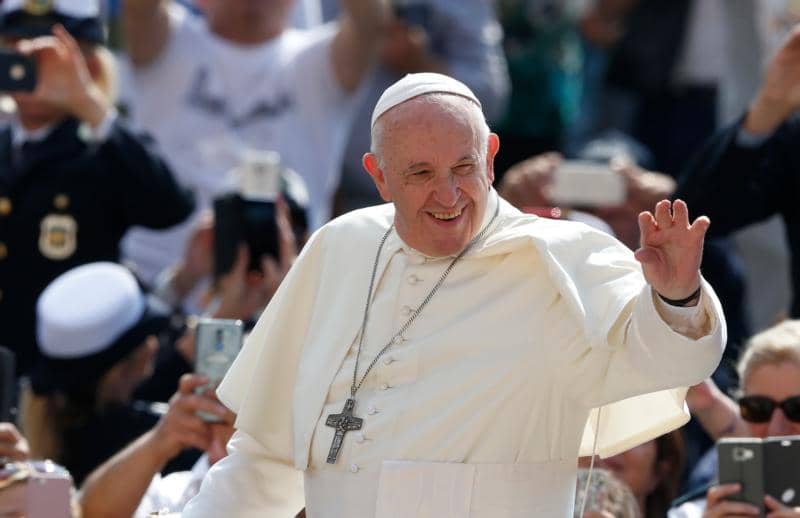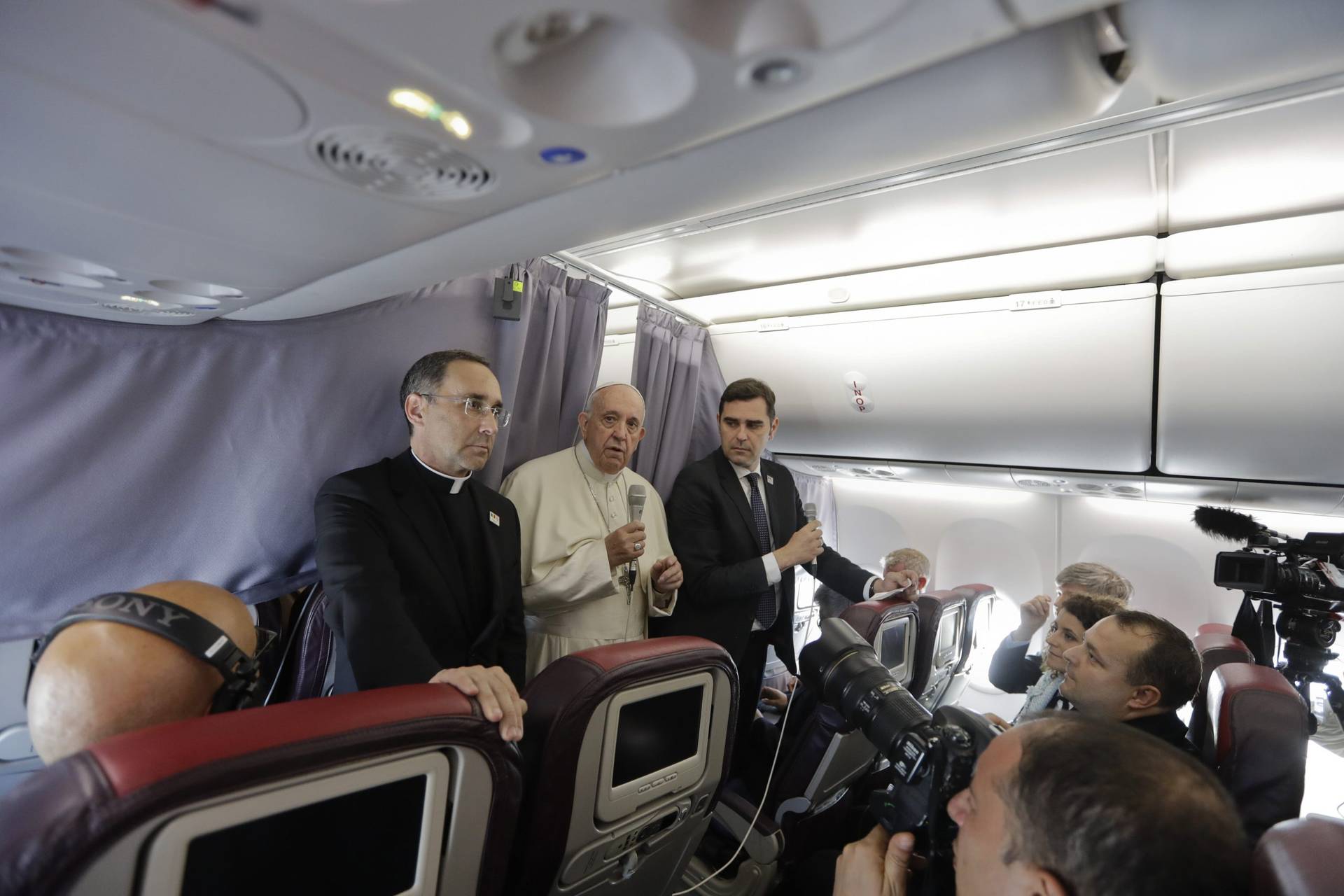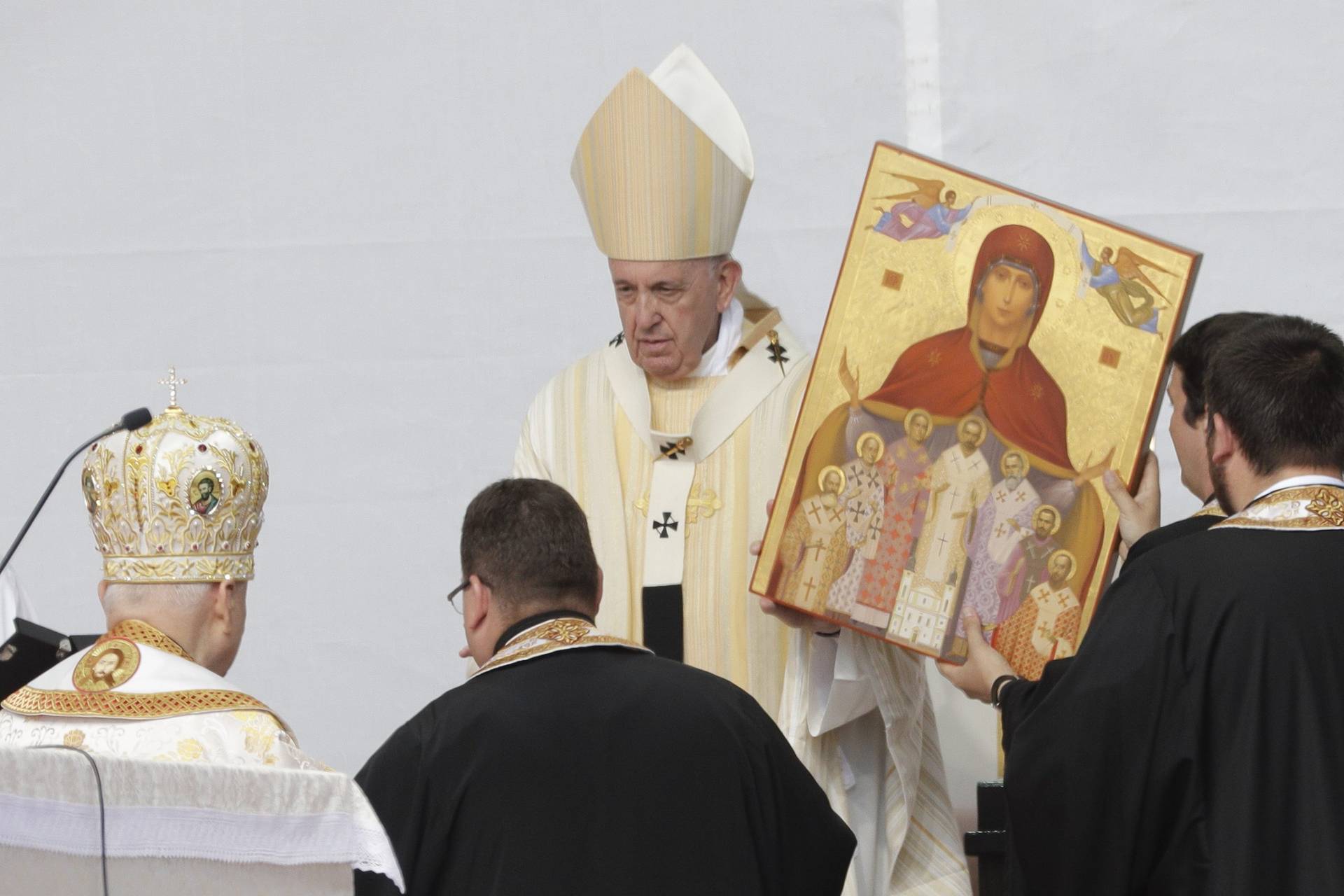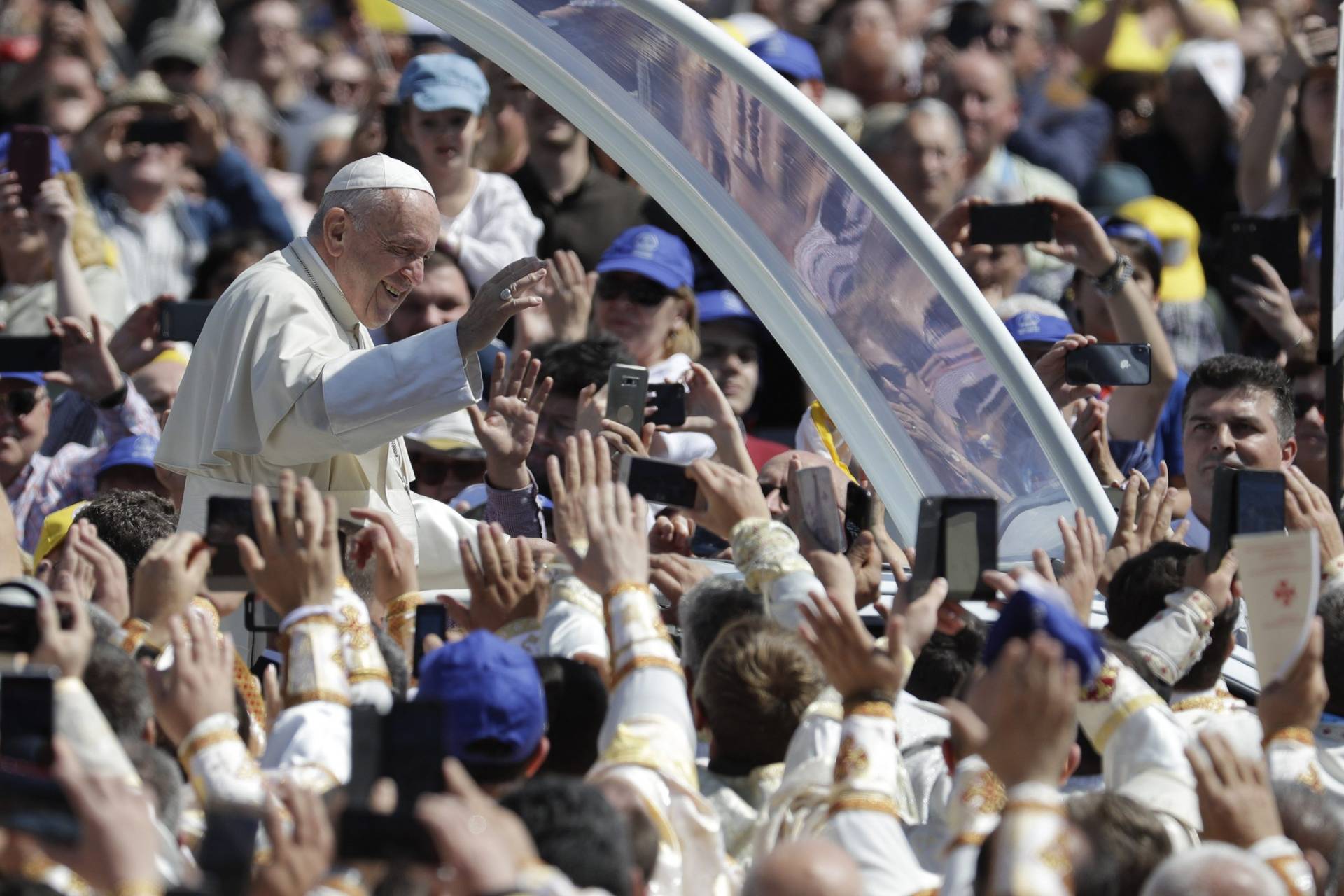IASI, Romania – It’s difficult to imagine a better place than Iasi, the historical and cultural capital of Romania, for Pope Francis to tell young people in the country navigating an uncertain yet exciting future to hold on to their roots.
“When you grow up, do not forget your mother and your grandmother, and the simple but robust faith that gave them the strength and tenacity to keep going and not to give up,” the pope told young people and families greeting him before the Palace of Culture on Romania’s Children’s Day June 1.
“It is a reason for you to give thanks and to ask for the generosity, courage and selflessness of a ‘home-grown’ faith that is unobtrusive, yet slowly but surely builds up the Kingdom of God,” he added.
Children greeted the pope wearing traditional garb and carrying flowers, which Francis laid before the image of the Virgin Mary of Cacica. Hymns echoed from the busy square in the city that represents not only the rich history, culture, education and art of the Romanian people, but is also the beating heart of its development and economy.
Francis heard the testimony of a couple, Elisabetta and Ioan, parents to eleven children, who convened for the historic papal visit. Their experience spoke to the struggle that this country on the outskirts of Europe has endured over the centuries and especially under Nazi and Communist regimes.
“In the Lord we found strength when we did not cater to the belief by communist authorities that we had too many children,” they said.
Today, as the country develops and experiences economic growth, they said they “dream that [our children] may build a future without forgetting where they came from. We dream that all our people may not forget its roots, and we pray that it may live in peace and with faith in itself and God.”
The pope praised the couple for looking to the future and opening its doors to their children, despite the many challenges, and urged them never to forget what they learned from their journey.
“Never forget where you come from,” Francis said. “Wherever you go and whatever you do, don’t forget your roots.”
Building on a concept he developed during the October summit of Catholic bishops on young people, the pope emphasized the importance of an intergenerational encounter between the elderly and the young in order to engage the future while being solidly rooted in the past.
“Life begins to wilt and droop, our hearts stop beating and wither, the elderly no longer dream, and young people no longer prophesy when pathways between neighbors disappear… Because without love and without God, no one can live on the earth,” Francis said.
While Iasi is known for its universities and architecture, the city is also an important information and technology center with gigantic logos of Amazon, Oracle and Xerox surrounded by massive shopping malls.
Eduard, a young man, revealed that “at university and in the workplace, I struggle not to be ashamed of my faith and to not be afraid to be a witness to it,” which can be read as a sign of the Western brand of secularism seeping into the Eastern European regions.
“Certainly, a faith that does not show up on the stock exchange, or ‘sell’, may not appear,” the pope said, “to ‘be of much use.’”
But the pope urged young people not to “close in on themselves” and instead actively participate in a web of relations that identify and strengthen them.
“The Evil one divides, scatters, separates; he sows discord and distrust. He wants us to live ‘detached’ from others and from ourselves,” the pope said. “The Spirit, on the contrary, reminds us that we are not anonymous, abstract, faceless beings, without history or identity. We are not meant to be empty or superficial.”
In a crowd of children, adults and elderly, Francis described a web of mothers, fathers, grandparents, sons and daughters tied together by a bond “stronger than any other type of connection.”
“Roots,” he said, are “the realization that we belong to one another, that each of our lives is anchored in the lives of others.”
In a city embodying the rich cultural and ethnic diversity of Romania, the pope encouraged its young to go forward knowing who they are and where they came from.
“Today, from this place, new paths can open up to the future, towards Europe and many other parts of the world,” the pope said. “You can be pilgrims of the twenty-first century, capable of imagining afresh the bonds that unite us.”
Follow Claire Giangravè on Twitter: @ClaireGiangrave
Crux is dedicated to smart, wired and independent reporting on the Vatican and worldwide Catholic Church. That kind of reporting doesn’t come cheap, and we need your support. You can help Crux by giving a small amount monthly, or with a onetime gift. Please remember, Crux is a for-profit organization, so contributions are not tax-deductible.















